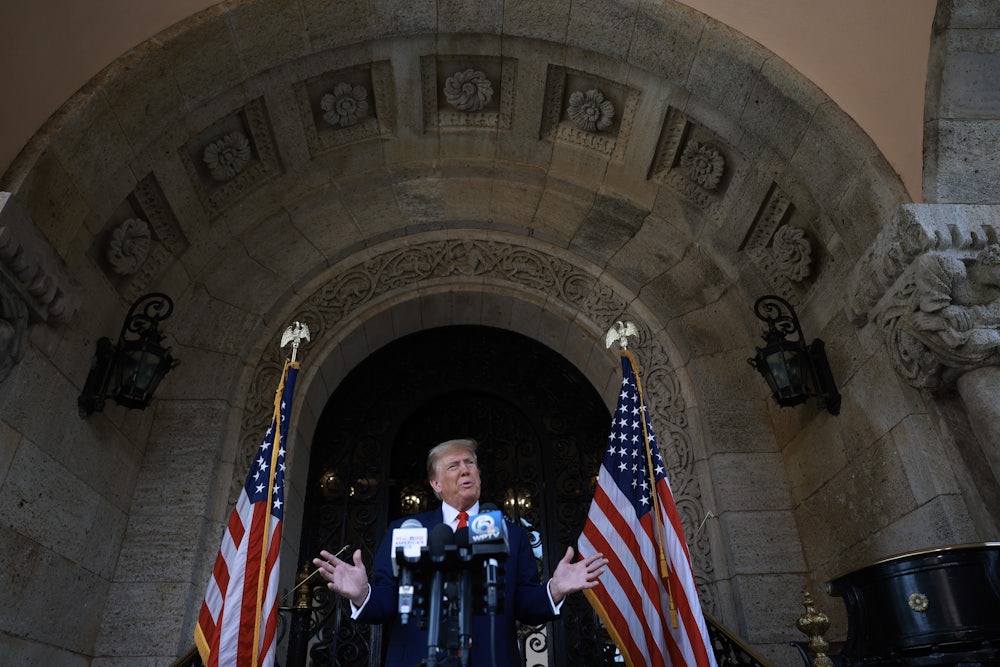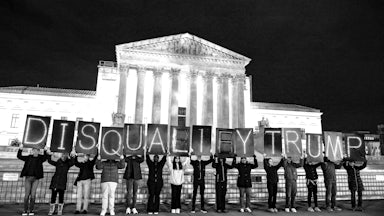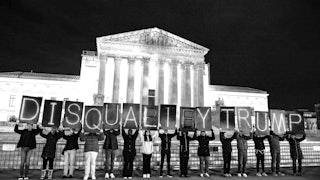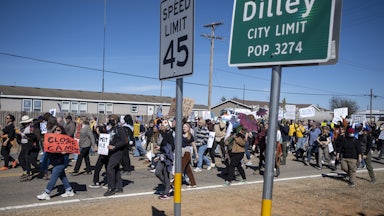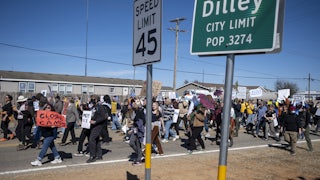It’s been a significant week for former President Donald Trump’s various legal entanglements. It was also, by extension, a critical week for the Republican senators who are increasingly opting to hitch their political wagons to Trump as it becomes apparent that he will likely be the GOP nominee for president once more in 2024. As GOP senators ready for another campaign cycle in support of Trump, the former president’s headline-grabbing legal snares have become something for which they too have to have answers.
On Tuesday, a federal appeals court rejected Trump’s argument that he could not be prosecuted on charges of attempting to subvert the 2020 election. Two days later, the Supreme Court heard oral arguments in a case to determine whether Trump could be included in the Colorado primary ballot, after that state’s top court had ruled he had violated the Fourteenth Amendment’s clause to prevent insurrectionists from running for office. The court’s liberal and conservative justices appeared skeptical on the matter, worrying about the long-term ramifications of allowing a single state to disqualify a candidate.
“Why should a single state have the ability to make this determination, not only for their own citizens but for the rest of the nation?” asked Justice Elena Kagan, one of the court’s three liberal justices, calling such a ruling “extraordinary.”
This was an argument echoed in the Senate by someone on the opposite end of the ideological spectrum: Republican Senator Josh Hawley. “If officials of any party can kick off a presidential candidate they don’t like—I mean, if Democrats can do this to Trump, then Republican states will absolutely do it to Biden,” said Hawley. “If that happens, we’ll never have another open election in this country. It’ll be that if you live in a red state, only red candidates on the ballot; if you live in a blue state, only blue candidates. That’s insane.”
Some members of Congress are already taking action to defend Trump: More than 60 House Republicans signed onto a resolution this week saying that the former president “did not engage in insurrection.” By declaring that Trump is not an insurrectionist, the measure would attempt to subvert state attempts to remove him from the ballot using that consideration. Senator J.D. Vance, considered a potential contender for Trump’s vice presidential pick, is introducing the legislation in the Senate.
“Let the people decide who the president is, not a panel of judges in Colorado. It’s a pretty preposterous case,” Vance said on Thursday.
But it wasn’t all good news for Trump on the legal front this week, given the earlier appeals court decision ruling that he was not immune from prosecution. In that decision, the judges cited some unexpected sources: the senators who voted to acquit Trump on charges of inciting insurrection in his 2021 impeachment trial.
Trump’s legal team had argued that, because he was acquitted in the trial that occurred after the riot at the U.S. Capitol on January 6, 2021, he could not be subject to further criminal prosecution, as it would violate his right not to be tried twice for the same crime. The court ruled that “impeachment is a political process that is instigated and overseen by the Congress”—and thus not equivalent to a criminal trial.
“As a result of the political nature of impeachment proceedings, impeachment acquittals are often unrelated to factual innocence,” the judges wrote in their ruling, which was released on Tuesday. The court noted that the 43 Republican senators who had voted to acquit Trump in the trial had done so for a variety of political and procedural reasons—30 of them citing the objection that the former president could not be convicted because he was no longer in office.
Trump’s attorneys had a second, circular argument that was also rejected by the judges: He could not be criminally charged without first being impeached and convicted. The appeals court ruled that, if Trump’s argument was correct—as was the argument by 30 senators that no former president could be impeached—then no former president could ever be prosecuted for a crime committed while in office.
“His proposed interpretation still would leave a President free to commit all manner of crimes with impunity, so long as he is not impeached and convicted,” the judges wrote. Their decision was informed by those 30 senators who determined Trump could not be convicted for jurisdictional purposes, including then–Senate Majority Leader Mitch McConnell, who said at the time that “we have no power to convict and disqualify a former office holder who is now a private citizen.”
Senator Kevin Cramer, one of the senators whose statements objecting to the trial on jurisdictional grounds was cited by the appeals court, has endorsed Trump for reelection; however, despite not having read the decision on Tuesday, he echoed some of the arguments made by the judges. “Impeachments don’t prove anything,” Cramer told me on Tuesday. Although he believes the prosecution of Trump is a “weaponization” of the judicial branch of government, he continued that he did not believe it “absolves” Trump in the legal system.
“That’s not the issue that protects him or doesn’t protect him from future prosecution,” Cramer said.
Senator Thom Tillis, another Republican whose decision not to convict Trump was referenced in the decision, said that the appeals court decision was “not surprising to me.” “Quite honestly, I don’t think it should be surprising to President Trump or his attorneys. And I don’t criticize them for going to the mat, that’s a part of the legal process,” Tillis said.
When told that he was cited by name in the appeals court ruling, Tillis called it “a first,” comparing it to a recent revelation about his connection to a singer who testified before the Senate on the opioid crisis last month.
“In the same month, I find out that I’m cited in a court opinion and I lived in the same trailer park as Jelly Roll,” Tillis deadpanned.
However, Vance argued that the decision raised questions about the nature of presidential immunity. “You don’t want a president unable to discharge his official obligations for fear that they’re going to be sued or prosecuted down the road,” Vance said.
When asked whether he was implying that Trump’s efforts to overturn the election were thus part of his official duties as president, Vance objected to the question and reiterated his position.
“Well, I reject the premise,” Vance said. “But the argument is, the president has to have broad immunity to do his job—in the same way that police officers have to have broad immunity, the same way judges have broad immunity to do their job. And I think the D.C. Circuit’s theory raised some pretty thorny questions about whether presidents can actually do what they need to do.”
